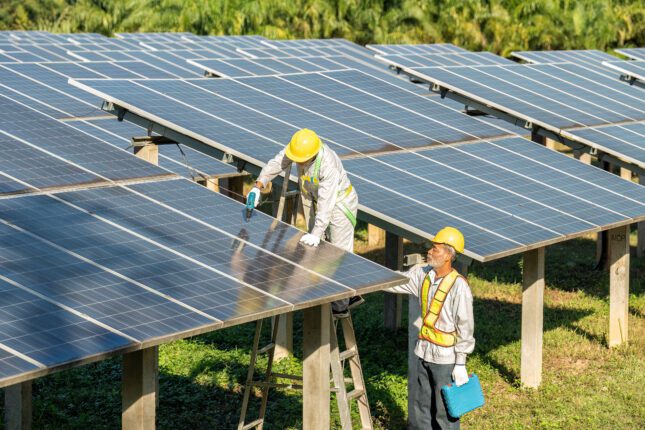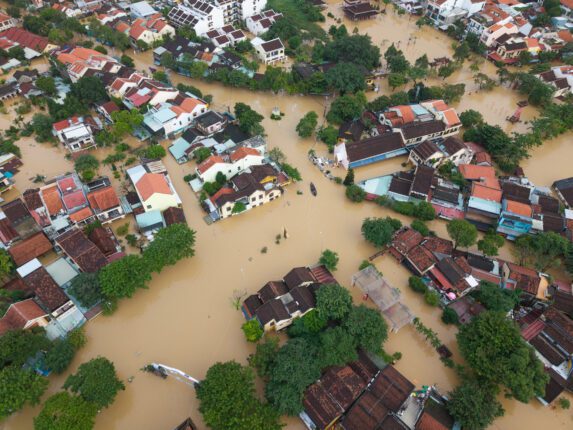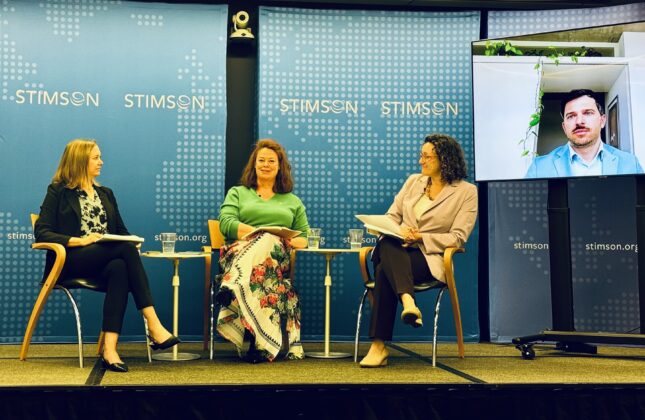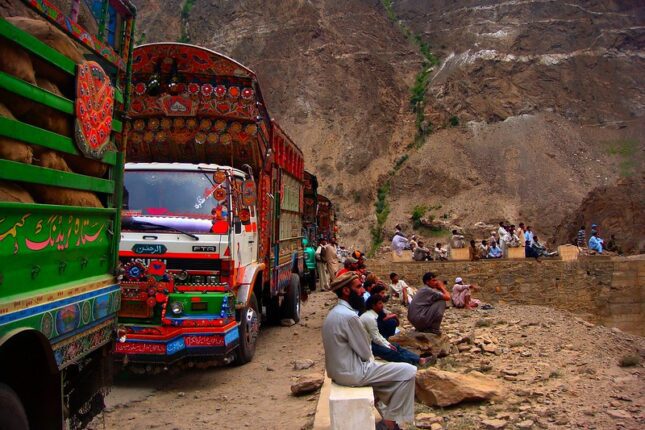-
Energy Security and Global Climate: How India Navigates Middle East Volatility
›The recent conflict between Iran and Israel, as well as Iran’s threat to close the Strait of Hormuz, have done more than starkly expose the risks of geopolitical instability in the Gulf. It has also underscored the vulnerability of India’s energy security due to its heavy reliance on fossil fuel imports, and particularly crude oil transiting through the Strait of Hormuz.
-
Shall We Ask ChatGPT About Water During Negotiation?
›November 17, 2025 // By Kyungmee Kim -
From Readiness to Resilience: Strengthening Institutions for Climate Action
›November 12, 2025 // By Stephanie SpeckThis article was adapted from Stephanie Speck’s remarks at the 2025 Berlin Climate Security Conference.
When I arrived in Mogadishu in 2013 to set up and lead the Office of the President’s communication and media department, I had the privilege of being invited to breakfast with the President. As I made my way through the layers of security leading to the presidential residence, I noticed an older woman walking behind me—cradling a chicken under each arm. She followed closely, undeterred by the checkpoints that stopped others.
-
Closing the Climate Finance Gap in Fragile States
›November 11, 2025 // By Madelyn MacMurrayA massive flood in Somalia killed hundreds of people, and displaced tens of thousands more. Yet the survivors faced a vexing prospect when they tried to return home: Al-Shabab had moved in.
Stephanie Speck, Head of Special Initiatives at the Green Climate Fund, observed at a recent Stimson Center event that Shabab’s new levies meant that residents could not to move back to farm their land.
-
Environmental Security Weekly Watch: November 3-7, 2025
›A window into what we’re reading at the Stimson Center’s Environmental Security Program
Corruption Stymies Environmental Crime Fight in the Amazon (Mongabay)
In the Andean Republics, rampant systemic judicial corruption has challenged the entire justice system, with judges implicated in both bribery and extortion. Because leadership from judges is essential for the success of reform efforts ranging from anti-corruption campaigns to environmental crime enforcement, the result has been damaging to the entire justice system in the region for more than a decade.
-
Environmental Security Weekly Watch: October 20-24, 2025
›US Resistance Delays Vote on Shipping Decarbonization Rules (Mongabay)
The International Maritime Organization (IMO) has voted 57-49 to postpone the adoption of the “net-zero framework” until October 2026. As the shipping sector’s first binding deal on global greenhouse gas emissions, the agreement would have established progressively stricter intensity limits starting in 2028. The framework also imposed substantial fees for noncompliance, with high emitters facing up to $1.5 million in additional annual fees by 2035 that could raise fuel costs by roughly 20%. Low-emission vessels would be rewarded with tradable carbon allowances.
-
China’s Belt and Road in Pakistan: What CPEC Leaves Behind
›Launched in 2013, China’s Belt and Road Initiative (BRI) has drawn wide global attention, with scholars and policymakers examining its geopolitical and economic implications. Much less explored, however, are the subnational impacts of BRI in participating countries. The China Pakistan Economic Corridor (CPEC), adopted as Pakistan’s flagship BRI project in 2015, offers a case in point.
-
Environmental Security Weekly Watch: September 29 – October 3, 2025
›A window into what we’re reading at the Stimson Center’s Environmental Security Program
Nickel Mining Threat to New Raja Ampat UNESCO Biosphere Reserve (Mongabay)
When Indonesia’s Raja Ampat archipelago received a UNESCO Biosphere Reserve designation on September 27, 2025, the new designation adding to the status it won as a Global Geopark in 2023. Yet this dual honor highlighting the archipelago’s exceptional biodiversity is now under threat from intense pressure from global demand for nickel for electric vehicle batteries that is challenging the reserve’s conservation goals.
Showing posts from category environment.










